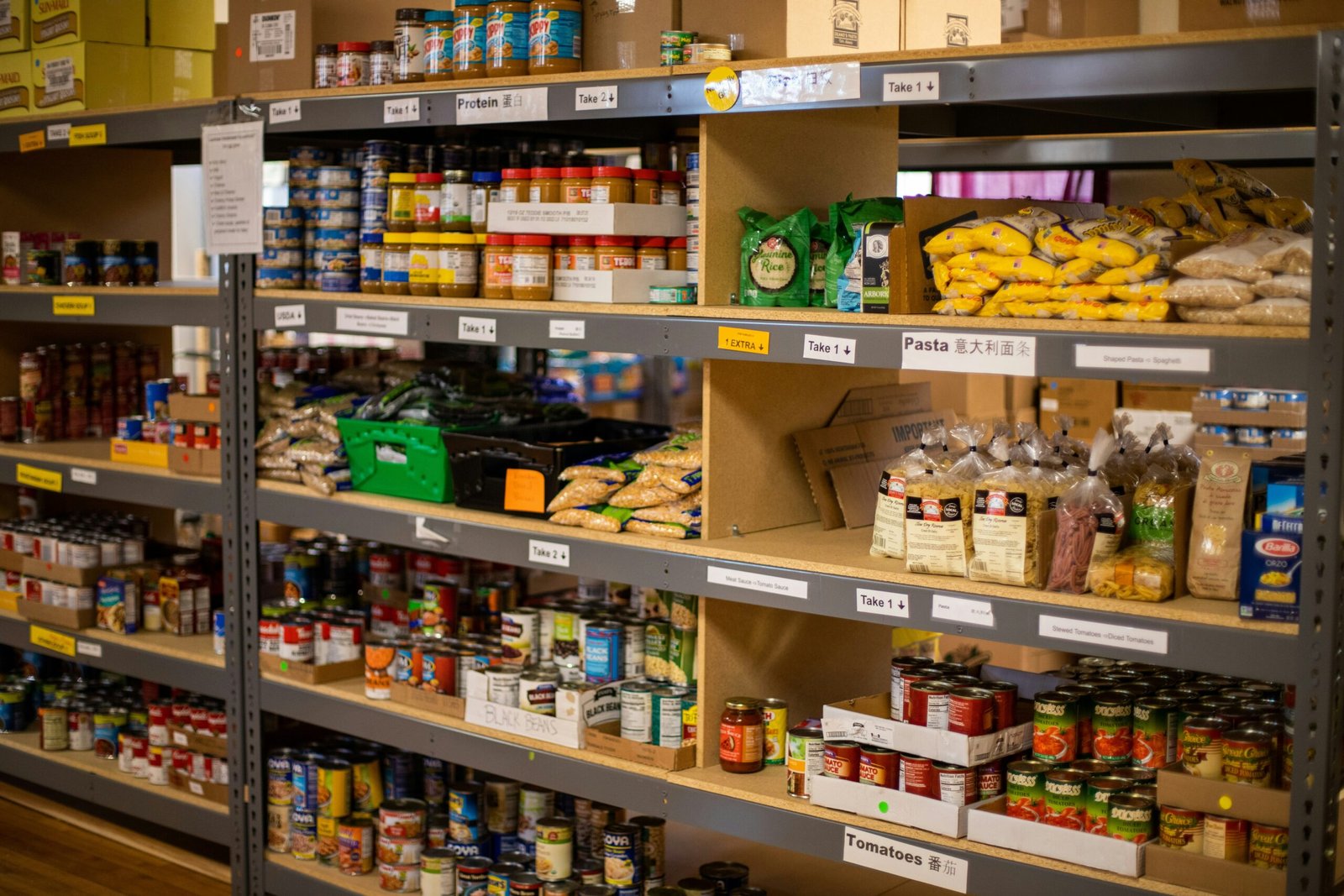Understanding the Food Shortage Crisis in Palestine
The food shortage crisis in Palestine is a multifaceted issue deeply rooted in historical and political complexities. The ongoing conflict, blockades, and economic instability have significantly contributed to the scarcity of food resources, leaving many Palestinian families in dire need. The continuous state of conflict has disrupted agricultural production and supply chains, making it increasingly difficult for farmers to grow and distribute food. Additionally, blockades and restrictions on movement have limited the import and export of essential goods, exacerbating the food shortage.
The economic instability in the region has further compounded the problem. High unemployment rates and widespread poverty have left many Palestinians unable to afford basic necessities, including food. According to recent statistics, the unemployment rate in Gaza stands at around 49%, one of the highest in the world. This economic hardship has directly translated into increased rates of food insecurity and malnutrition.
Current data reveals alarming statistics: approximately 1.6 million Palestinians, or 31% of the population, are food insecure. In Gaza, this figure is even more staggering, with nearly 68% of households experiencing food insecurity. Malnutrition rates are also concerning, particularly among children. Reports indicate that 10% of Palestinian children under five suffer from chronic malnutrition, a condition that can have long-term detrimental effects on their health and development.
The population segments most affected by this crisis include children, pregnant and lactating women, and the elderly. These vulnerable groups are particularly at risk of the adverse health effects associated with food shortages and malnutrition. The urgency of addressing these issues cannot be overstated. Without immediate and sustained intervention, the food shortage crisis in Palestine will likely escalate, leading to further humanitarian disasters and jeopardizing the well-being of countless individuals.
The Importance of Food Donations
Food donations play a pivotal role in alleviating the current food shortage crisis in Palestine. With escalating conflicts and economic instability exacerbating the situation, many Palestinians face severe food insecurity. By contributing to food donation campaigns, individuals and organizations can provide immediate relief to those who are hungry and malnourished. This direct support is crucial in preventing further deterioration of health and well-being among vulnerable populations.
Immediate food aid not only addresses acute hunger but also contributes to long-term stability. When families have access to sufficient and nutritious food, they are better equipped to focus on other essential aspects of life, such as education and employment. This, in turn, can foster a more resilient and self-sufficient community. Historical data from past food donation campaigns in Palestine reveals significant positive outcomes. For instance, the 2020 humanitarian aid initiative saw over 150,000 families receiving essential food supplies, leading to a notable decrease in malnutrition rates among children.
Personal testimonials further underscore the impact of these contributions. A mother from Gaza, who received aid through a recent campaign, shared, “The food donations were a lifeline for my family. Without them, we would have struggled to survive.” Such stories highlight the real and tangible difference that food donations make in the lives of recipients.
Despite the clear benefits, some common concerns and misconceptions about food donations persist. One prevalent worry is whether the aid reaches those in need. Reputable organizations operating in Palestine have robust systems in place to ensure that donations are efficiently distributed to the most affected areas. Additionally, transparency and regular reporting by these organizations help reassure donors about the effectiveness of their contributions.
In conclusion, food donations are not just a temporary fix but a vital component in addressing both immediate and long-term food insecurity in Palestine. By supporting these initiatives, donors can be confident that their contributions are making a meaningful difference, providing sustenance and hope to those who need it most.
How to Donate Food to Palestine
Addressing the urgent food shortage in Palestine requires coordinated efforts and thoughtful contributions. This guide will walk you through different methods available for donating food, ensuring that your efforts make a significant impact. Whether you choose to make a monetary contribution or directly ship non-perishable food items, every bit helps in alleviating the crisis.
Monetary Contributions: One of the most effective ways to donate is through monetary contributions. These funds are utilized to purchase food locally, allowing for quicker distribution and supporting local markets. To donate money, simply click on the ‘Donate Now’ button located on this blog post page. Follow the on-screen instructions to complete your transaction securely. This method ensures that resources are directed to where they are needed most, and it can be done conveniently from anywhere in the world.
Direct Shipping of Non-perishable Food Items: If you prefer to donate food items directly, consider sending non-perishable goods such as canned vegetables, dried beans, rice, and pasta. To do this, package your donations securely and ship them to the designated address provided by the organization. Ensure that the items have a long shelf life and are packaged in sturdy containers to withstand transit. This method requires more effort but provides immediate relief to those in need.
Types of Food Most Needed: Focus on donating staple foods that are versatile and have a long shelf life. Items such as flour, sugar, cooking oil, and canned protein sources like tuna or beans are highly valuable. These staples provide the essential nutrients required for a balanced diet and can be stored for extended periods.
Ensuring Sustainable and Effective Donations: To make your donations more sustainable, consider setting up a recurring contribution. Regular donations help maintain a steady supply of resources, providing continuous support. Additionally, always verify that the organization you are donating to is reputable and transparent about how donations are used. This ensures that your efforts have the maximum possible impact.
Stories of Impact: How Your Donations Help
Amidst the challenging circumstances in Palestine, food donations have become a vital lifeline for many families. One such family is the Al-Khatib family, who faced severe food insecurity after the primary breadwinner lost his job due to ongoing conflict. With the help of food donations, the Al-Khatib family received essential supplies that not only alleviated their hunger but also restored a sense of normalcy and dignity to their lives. “The food donations have been a blessing,” shares Mrs. Al-Khatib. “We can now provide meals for our children without the constant worry of where our next meal will come from.”

Another poignant example is from the village of Beit Hanoun, where an elderly couple, Ahmed and Fatima, struggled to make ends meet. With limited access to resources, they often went days without adequate food. Through the intervention of aid organizations, food parcels reached their doorstep, significantly improving their quality of life. “We are deeply grateful,” says Ahmed. “These donations have given us hope and strength to keep going.”
The impact of food donations extends beyond individual families to entire communities. Aid workers on the ground observe the transformative effect of these contributions daily. “Every donation counts,” emphasizes Samira, a coordinator with a local relief organization. “We see children who can attend school with a full stomach and parents who are relieved from the anguish of food scarcity. It’s a ripple effect of positive change.”
Organizations such as the Palestinian Food Assistance Program and international NGOs are instrumental in these efforts. Their coordinated actions ensure that food donations reach the most vulnerable populations efficiently. “The generosity of donors worldwide has been pivotal,” notes Daniel, an aid worker. “It enables us to support communities in dire need and make a real, tangible difference.”
The stories of impact are countless, each illustrating the profound difference that food donations make in the lives of those facing food shortages. By donating food, you are not just providing sustenance; you are offering hope and resilience to individuals and families who need it most.


